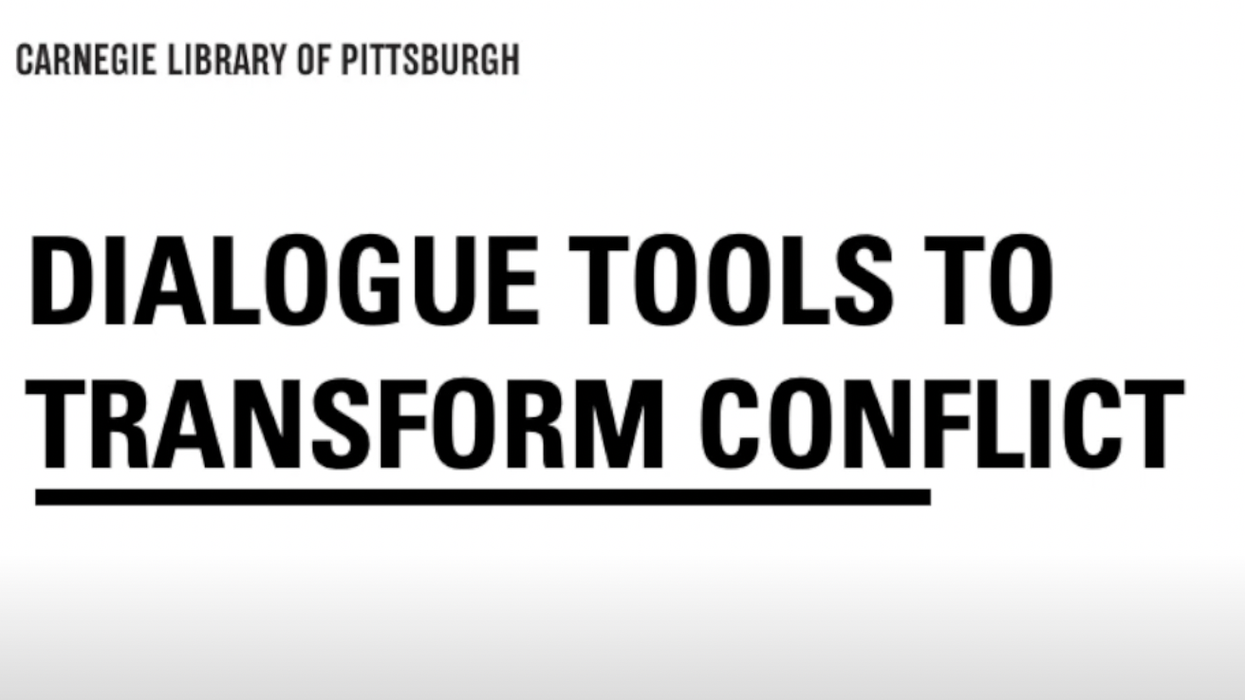Have you had to deal with people at odds with one another, or you? The Carnegie Library of Pittsburgh and Essential Partners share dialogue tools and techniques that will help you engage in divisive situations. Reflective Structured Dialogue has addressed some of the hardest conflicts through 30 years of work in the US and 25 other countries.
Video: Dialogue tools to transform conflict




















Trump & Hegseth gave Mark Kelly a huge 2028 gift